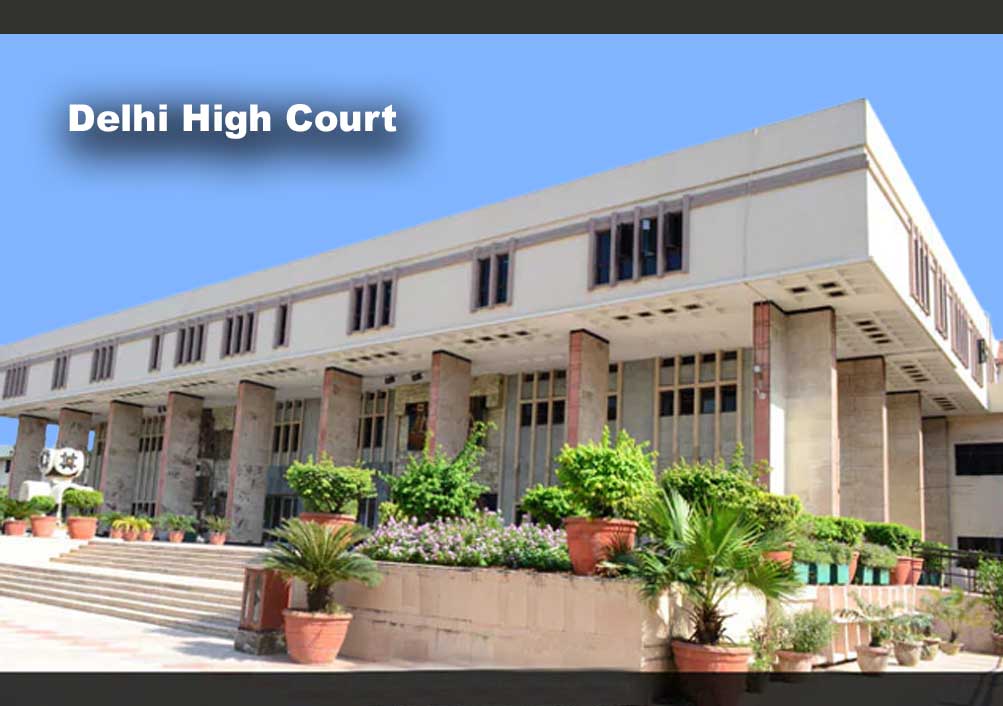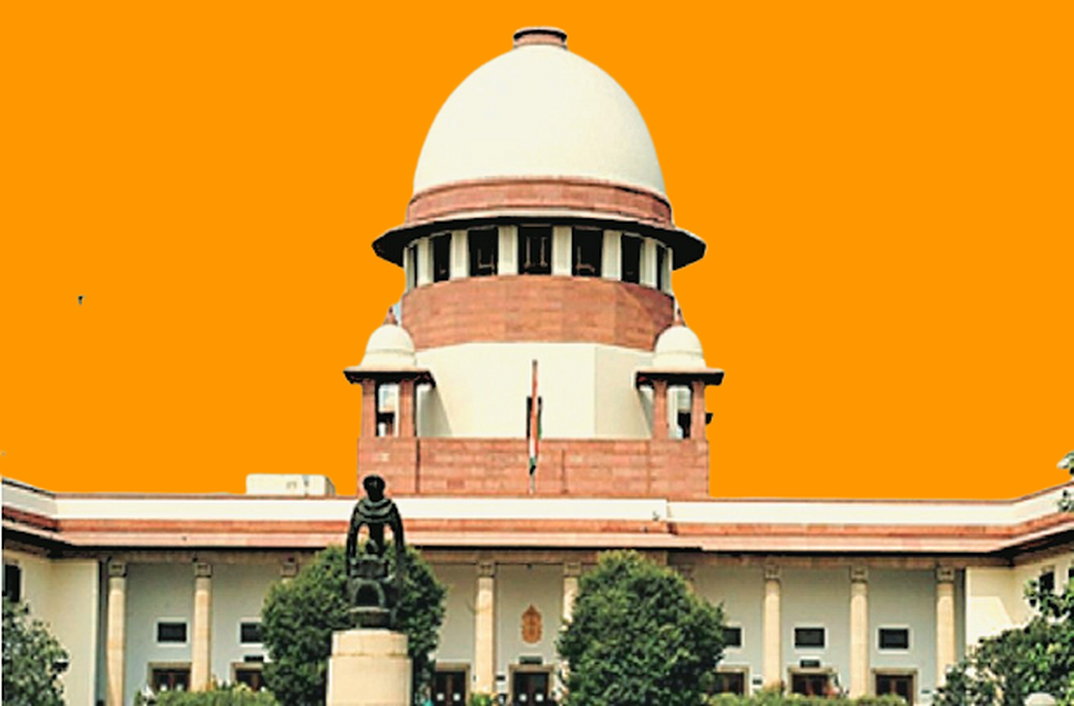To set aside order of conviction or acquittal, it must be proved that rights of parties were prejudiced because of joint or separate Trial,says Apex Court

Read Judgment: Nasib Singh vs. State Of Punjab & Anr
Pankaj Bajpai
New Delhi, October 11, 2021: The Supreme Court has recently held that even if it is conceded that the alleged offences committed in two separate FIRs were committed in the course of the same transaction, within the meaning of the phrase in Section 223(d) of the CrPC, it does not warrant the exercise of discretion to direct a retrial followed by a joint trial.
The effect of an order of retrial is ordinarily speaking to wipe out the evidence recorded at the earlier stage, added the Court.
While observing that judgment of the High Court is a travesty of justice, a Larger Bench of Justice D.Y. Chandrachud, Justice Vikram Nath and Justice B.V. Nagarathna opined that with a lapse of over seven years since the date of the incident, a retrial would not advance the cause of justice but would result in a serious miscarriage of justice.
The observation came pursuant to appeals arising from a judgment passed by Division Bench of the High Court of Punjab and Haryana in a batch of nine criminal appeals, whereby the High Court had remitted the orders of acquittal and conviction arising out of two separate FIRs for fresh trial and directed that the proceedings arising out of both the FIRs be clubbed together u/s 223 CrPC and be tried together by one court.
The background of the case was that an FIR alleging rape of a girl was lodged against three accused Balwinder Singh, Gurpreet Singh alias Aman and Sandeep Singh. Later the prosecutrix committed suicide leaving behind a suicide note naming Balwinder Singh, Gurpeet Singh and Shinderpal Kaur.
Later, another FIR was lodged against SI Nasib Singh, Balwinder Singh, Gurpreet Singh alias Aman and Shinderpal Kaur for abetting the suicide of the prosecutrix. SI Nasib Singh was later implicated in the earlier FIR also.
During the course of trial, the Additional Sessions Judge, Patiala convicted Balwinder Singh, Gurpreet Singh alias Aman, Shinderpal Pal Kaur and Sandeep Singh while acquitted Nasib Singh.
The ASG separately tried the case arising out of other FIR and convicted the three accused but acquitted Nasib Singh. Later, on appeals filed by convicts and the mother of the prosecutrix, the High Court ordered retrial.
After considering the arguments, the Larger Bench emphasized that the power to order a retrial has been consistently held to be of an exceptional nature beginning with the formulation of the principles by the Constitution Bench in Ukha Kolhe vs. State of Maharashtra, and the resultant formulation, more recently, by the two judge Bench in Ajay Kumar Ghoshal vs. State of Bihar.
While stating that ‘directing a joint trial is not mandatory but lies within the discretion of the Court u/s 223 of the CrPC’, the Larger Bench observed that Clause (d) of Section 223 permits persons accused of different offences committed in the course of the same transaction to be charged and tried together.
“While explaining the ambit of the corresponding provision of the Code of 1898, this Court in Chandra Bhal vs. The State of UP 1971 (3) SCC 983], has emphatically ruled that the :(i) The statutory provision neither renders a joint trial imperative nor does it bar or prohibit separate trials; (ii) The matter is required to be determined by the trial court at the beginning of the trial and it is not to be determined on the basis of the result of the trial; and (iii) Where the issue is raised in the court of appeal, clear prejudice must be established as having been caused as a result of the separate trial”, quoted the Bench.
The Larger Bench went on to state that a formulation similar to that in Chandra Bhal finds expression in the two judge Bench decision in State of M P vs. Bhooraji , where the Court emphasized that a de novo trial should be a matter of last resort only when such a course of action becomes “so desperate and indisputable”. Moreover, this Court emphasized that the Appellate Court would do so in an extreme exigency to avert a failure of justice.
While exercising its power as a Court of appeal u/s 386 CrPC, the Court has to be conscious of the fundamental principle that the power to order a de novo trial or “that the accused be retried or committed for trial” is of an exceptional nature which is intended to prevent the miscarriage of justice, reiterated the Bench.
The Apex Court noted that the High Court in the present case was conscious of the fact that the appellant Nasib Singh was tried together with the other appellants during the trials in both the FIRs in view of Section 223(a) CrPC which stated that persons may be charged and tried together if accused of the same offence committed in the course of the same transaction.
Though the High Court noted that “he had earned a right and we should be slow in disturbing the same”, it yet remanded both the cases back for retrial “to maintain balance and delivery of justice”, added the Apex Court.
Though the Top Court found that there is merit in the submission which had been urged both by counsel for the appellant and for the State of Punjab that the order of retrial wipes out the entire record of evidence, and that the evidence which has been recorded during the separate trials cannot exist for some of the accused and not for the others.
“There was a serious allegation of a gang rape having been committed on the prosecutrix which is alleged to have ultimately resulted in her suicide on 26 December 2012 leading to the registration of FIR 100 u/s 306/34 IPC which was transferred to PS Samana and registered as FIR 187”, observed the Court.
The Apex Court found that it is evident that even the appellant has been able to establish that a retrial would be a matter of serious prejudice since vital evidence which has been recorded during the course of the trial would be obliterated as a result of the death of the witnesses from the investigating team lead by the appellant.
That apart, a retrial will not serve the ends of ensuring that justice is done in a heinous crime alleged to have been perpetrated on the prosecutrix resulting in her suicide, concluded the Apex Court.
Sign up for our weekly newsletter to stay up to date on our product, events featured blog, special offer and all of the exciting things that take place here at Legitquest.




Add a Comment